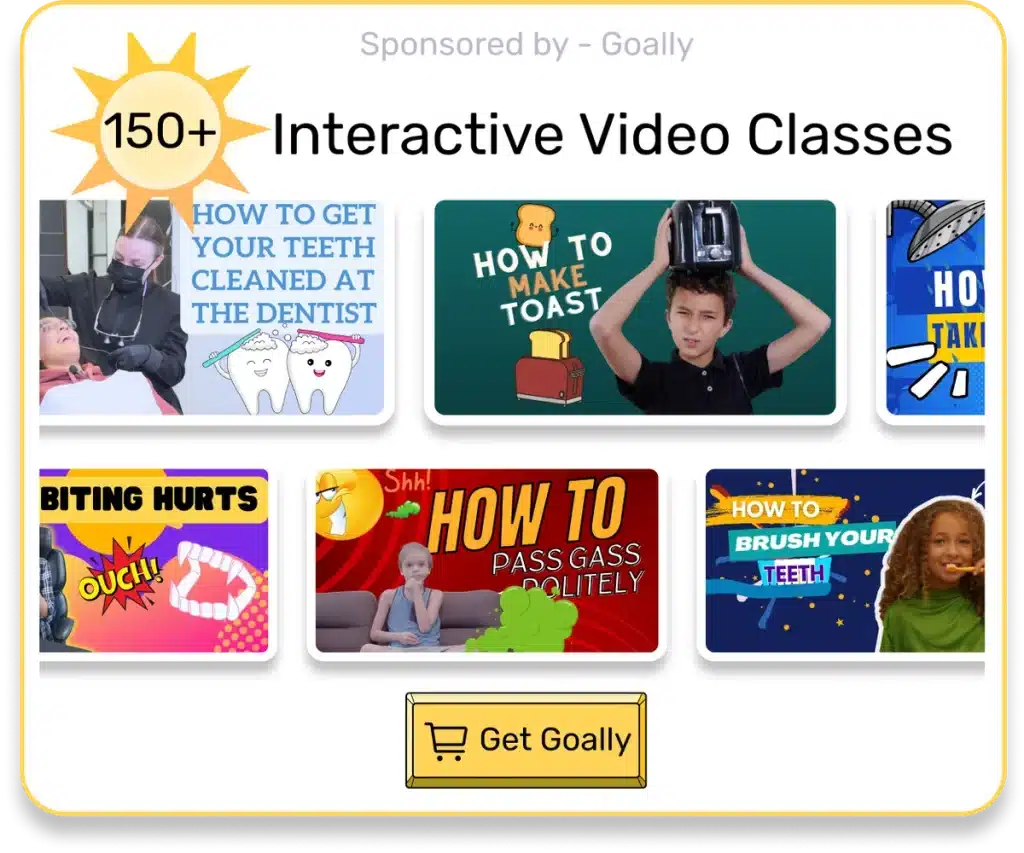Imagine the scene: you’re at the park with your neurodivergent child, and their favorite swing is taken. Instead of lashing out, they take a deep breath and calmly wait their turn. That’s self-control in action! In this blog post, we’ll define self-control in the context of kids’ development, discuss its importance, and provide practical tips to cultivate this essential skill in children with thinking and learning differences. You’ll get a better understanding of why nurturing self-control is vital for your child’s growth and how to support them effectively.
Table of Contents
Defining Self Control for Kids: More Than Just Discipline
Self-control, often referred to as self-regulation, is the ability to manage one’s emotions, behaviors, and reactions in difficult or challenging situations. When children have good self-control, they can resist impulsivity, remain patient, and make thoughtful decisions. This essential skill develops as kids grow, and is a valuable tool for neurodivergent children to adapt and pursue their goals more effectively. But what exactly does self control entail? To clarify, there are three primary components:
- Emotional Regulation: The ability to manage and control emotional reactions.
- Behavior Regulation: The capacity to control one’s actions, particularly when faced with temptations or distractions.
- Cognitive Regulation: The facility to manage attention and think flexibly about a problem or situation.

Read more: 10 Self-Control Activities
Why Self Control Matters for Your Child’s Growth
Developing self-control is crucial for neurodivergent kids because it impacts various aspects of their daily life. In fact, having good self-control is positively linked to academic success, emotional well-being, and social competence. But how does self control contribute to your child’s life?
- Managing stress and anxiety
- Building healthy relationships with peers and adults
- Improving problem-solving and decision-making skills
- Reducing impulsivity and impulsive behaviors
- Achieving personal and academic goals
Above all, kids who exercise self-control have an easier time navigating through everyday challenges, which ultimately increases their chances of overall success and happiness.
Practical Tips to Help Kids Develop Self Control
As a parent, you play a vital role in fostering self-control in your neurodivergent child. Below, you’ll find practical strategies designed to support their emotional and behavioral growth.

Create a Routine
Structured daily routines provide predictability and stability, which can help kids feel secure and learn self-control. Start by introducing simple routines focused on bedtime, mealtime, and other key moments in their day. Consistency is absolutely crucial to effectively develop these habits.
Here’s a sample morning routine to get you started:
- Wake up at a consistent time
- Brush teeth and wash face
- Get dressed
- Eat breakfast
- Complete any hygiene or daily chores
Model Self Control
You are your child’s first role model, so take advantage of this by demonstrating restraint, patience, and thoughtfulness in your own actions and reactions. Neurodivergent kids learn by observing their caregivers’ behaviors;
For instance, when you encounter situations that require self control – such as dealing with frustrating events or resisting unhealthy food choices – narrate your thought process out loud to provide them with valuable insight into how to handle similar situations themselves.
Break Tasks Into Manageable Steps
Breaking tasks into smaller, achievable steps can make self-regulation more accessible for neurodivergent kids. This strategy not only helps them feel accomplished but also reduces feelings of frustration and anxiety.
| Task | Steps |
|---|---|
| Cleaning their room | 1. Pick up toys 2. Put away clothes 3. Wipe surfaces 4. Vacuum floor |
| Getting ready for school | 1. Pack school bag 2. Put on shoes 3. Grab lunch 4. Head to the bus stop |
Encourage Mindfulness and Emotional Regulation Activities for Kids
Mindfulness helps children recognize and manage their emotions, which is a crucial aspect of self-control. For example, emotional regulation activities for kids can include deep breathing, yoga, or guided meditation. By practicing mindfulness, they develop greater self-awareness and focus, making it easier to navigate difficult emotions and make better choices.
Books, apps, and online resources can offer practical guidance on how to implement these emotional regulation activities for kids, allowing them to learn techniques suited to their unique needs and preferences.

Goally | Best Videos to Teach Life Skills
Give your kid an independent future. Goally has 100+ video classes teaching life skills like “How to Choose a Restaurant,” “How to Interrupt Politely,” and “How to Get Ready for School.”
Goally takes kids on an adventure that includes interactive practice and checkpoints along the way! No web browsers, YouTube, or social media.
In summary, understanding and nurturing self-control in your neurodivergent child is an essential component of their growth and overall well-being. By implementing practical strategies like creating routines, modeling self-control, and incorporating emotional regulation activities for kids, you can make a significant difference in their everyday life. Remember, as a parent, you have the power to provide your child with the tools they need to shine.
This post was originally published on 05/27/2023. It was updated on 07/11/2023.

Goally
We help parents teach their kids life skills, like doing bedtime and morning independently. Backed by science, we incorporate evidence-based practices and expert-informed designs in all of our apps and content.





